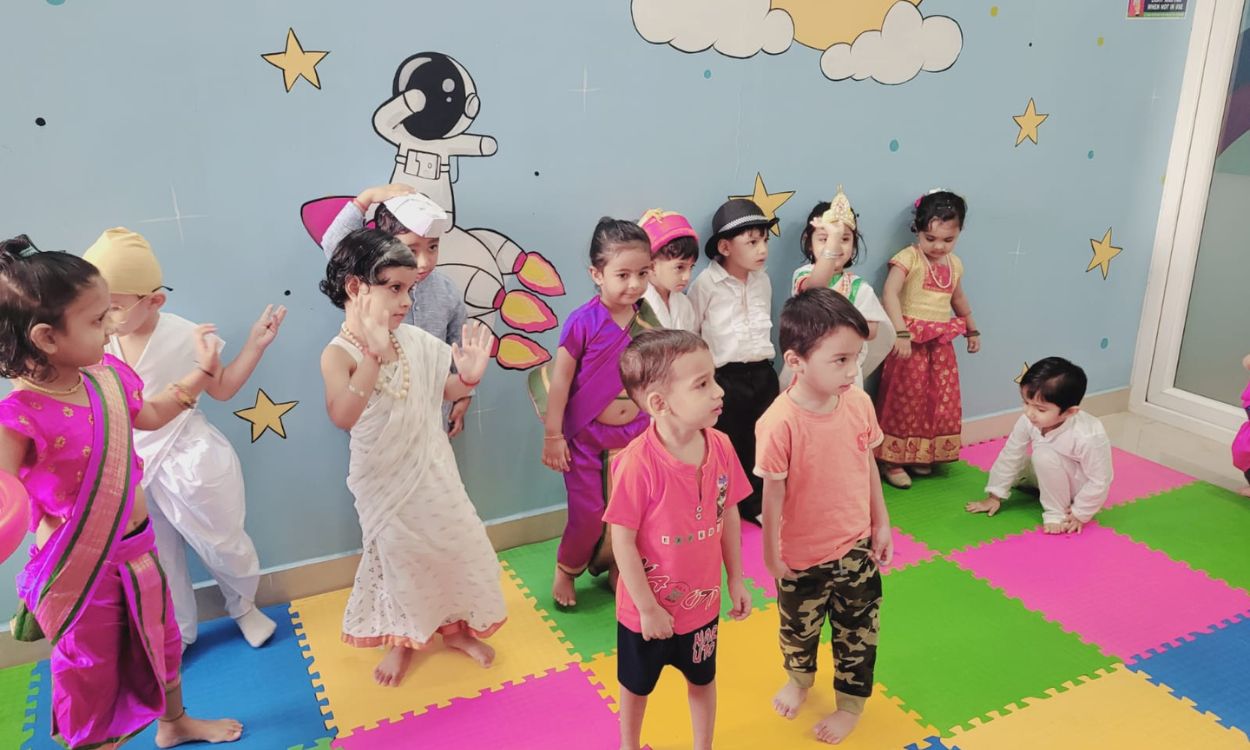Play is often dismissed as merely a fun pastime for children, but in reality, it serves as a powerful vehicle for learning and development. Play-based learning is an educational approach that encourages children to explore, discover, and engage with their surroundings through play. This method fosters essential skills and capabilities that set the foundation for lifelong learning. Here are five key benefits of play based learning for early childhood development. 5 Key Benefits of Play-Based Learning for Kids 1. Promotes Cognitive Development Cognitive development encompasses a child’s ability to think, learn, and understand the world around them. Through play, children engage in activities that stimulate their curiosity and problem-solving abilities. For instance, when children build with blocks, they explore concepts like balance, gravity, and spatial awareness. Such experiences encourage them to think critically and creatively. Play-based learning allows children to make decisions, plan, and adapt their strategies as they play, promoting essential cognitive skills that will benefit them throughout their lives. 2. Enhances Social Skills Social skills are critical for a child’s overall development, and play-based learning provides numerous opportunities for children to interact with their peers. During play, children learn to cooperate, share, and communicate effectively. They navigate social situations, resolve conflicts, and build friendships. Whether it’s playing a game, role-playing, or collaborating on a project, children practice empathy and understanding, which are vital components of social interaction. These experiences help children develop a strong sense of belonging and improve their ability to form meaningful relationships. 3. Fosters Emotional Growth Play-based learning offers children a safe space to express their emotions and develop emotional intelligence. When children engage in imaginative play, they often take on different roles and scenarios that reflect their feelings and experiences. This creative expression allows them to process their emotions and learn how to cope with various situations. For example, playing house might help a child understand family dynamics, while pretending to be a superhero can empower them to face challenges. As children learn to manage their emotions through play, they build resilience and confidence. 4. Encourages Physical Development Physical development is a crucial aspect of early childhood growth, and play is a natural way for children to enhance their motor skills. Engaging in active play, such as running, jumping, or climbing, strengthens their muscles and improves coordination and balance. Fine motor skills are also developed through activities like drawing, crafting, or manipulating small objects. These physical activities not only contribute to a child’s health and fitness but also enhance their ability to engage in more complex tasks as they grow. 5. Sparks Creativity and Imagination One of the most exciting benefits of play-based learning is its ability to spark creativity and imagination. Children are naturally curious and imaginative, and play provides them with the freedom to explore and create without limits. Whether they are building a fort, creating a story, or inventing a game, children are encouraged to think outside the box. This imaginative exploration fosters innovative thinking and problem-solving skills, which are invaluable in today’s fast-paced world. Creative play also cultivates a love for learning, as children are more likely to engage with and explore subjects that interest them. TechSix – Preschool & Daycare Excellence At TechSix, we are dedicated to providing exceptional preschool and daycare services that nurture children’s growth and development. Our play-based learning approach fosters creativity, social skills, and cognitive abilities in a safe, stimulating environment. With experienced educators and tailored programs for every age group, we ensure each child receives personalized attention. Choose TechSix for a holistic early learning experience that prepares your child for a bright and successful future! Conclusion Play-based learning is not just a fun activity; it is an essential component of early childhood development. By promoting cognitive growth, enhancing social skills, fostering emotional intelligence, encouraging physical activity, and sparking creativity, play-based learning provides a holistic approach to education. As educators and parents, embracing this method can significantly contribute to children’s overall well-being and prepare them for a successful future. At TechSix, we prioritize play-based learning to ensure that every child receives the support they need to thrive in all aspects of their development. Don’t Miss: Role of Play-Based Learning in Cognitive Development at TechSix


